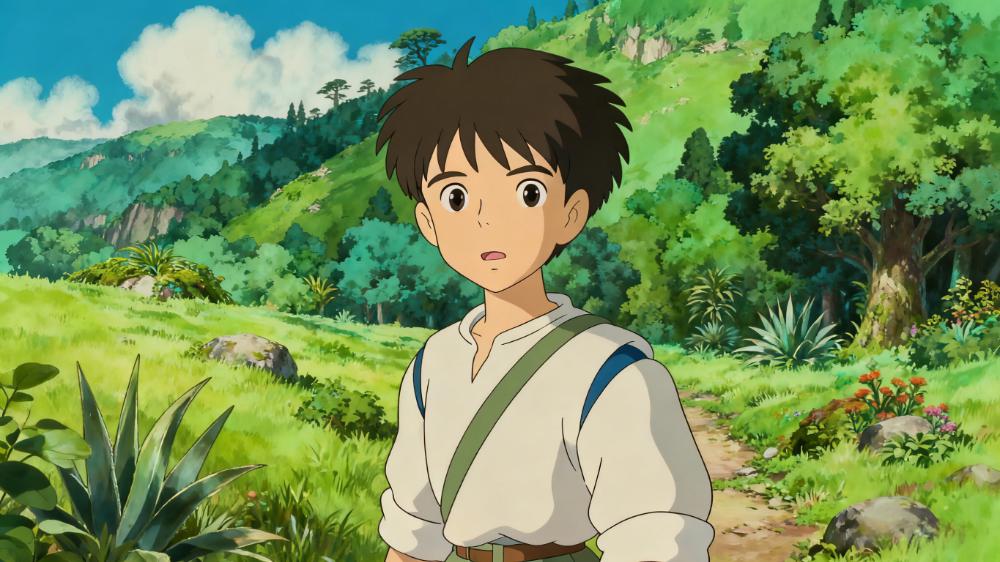The Revelation of the Sea of Corruption: Nature is Not Humanity's Enemy
In 'Nausicaä,' Miyazaki created a seemingly contradictory concept—the Sea of Corruption. This forest, regarded by humans as a land of death, is actually nature's purification system. When Nausicaä discovers that the Sea of Corruption's spores can purify contaminated land, the core message of the film becomes clear: nature has never been humanity's enemy; what needs redemption is humanity's arrogance toward nature.
This subversive view of nature is more profoundly expressed in 'Princess Mononoke.' The Forest Spirit is neither a benevolent guardian nor an evil destroyer, but a complex existence—it can take away life and also give new life. When the Forest Spirit transforms into a skeletal giant in the morning light, withering and instantly regenerating vegetation wherever it passes, Miyazaki uses visual language to interpret the ecological cycle of 'destruction and creation.'
This respect for nature's complexity makes Ghibli's environmental themes transcend simple 'protect the environment' slogans, becoming a profound inquiry into symbiotic relationships of life. Nature doesn't need humanity's salvation; what needs saving is humanity's relationship with nature.
Forest Wisdom: Interdependence in Life Networks
In 'My Neighbor Totoro,' the forest is no longer just a background, but a living organism. Totoro, as the forest's guardian, is not a lofty deity but a partner coexisting with humans. It helps the sisters plant seeds, shelters them with leaves on rainy nights, and even uses magic to turn dandelions into towering trees.
This concept of life networks is expressed at the micro level in 'The Secret World of Arrietty.' Although Arrietty's world is tiny, it's equally complex and complete. Every leaf, every drop of dew, every insect plays an important role in this micro ecosystem. When Arrietty makes curtains from leaves and beds from petals, she demonstrates not only creativity but also respect for and utilization of natural resources.
Through these works, Ghibli tells us that every life is a link in the ecosystem; nothing exists in isolation. Human survival depends on nature's gifts, and nature's prosperity also needs human guardianship.
Cycle Philosophy: Eternal Dialogue Between Life and Death
In 'The Boy and the Heron,' Miyazaki pushes natural philosophy to new heights. Through the theme of life-death cycles, the film explores the meaning of life and the mysteries of nature. When Mahito enters the other world and faces various fantastical creatures, he's not just on an adventure but understanding the essence of life.
The 'pelicans' in the film symbolize death, but their existence isn't to create fear but to maintain life's balance. When pelicans devour small fish, they're also contributing to a larger life cycle. This understanding of death reflects Ghibli's profound recognition of natural cycles.
Similarly, the 'herons' in the film symbolize wisdom, guiding Mahito to understand the world's truth. The herons aren't lofty mentors but equal dialogue partners with Mahito. This equal relationship reflects Ghibli's idealized vision of human-nature relationships.
Modern Revelation: Contemporary Significance of Ghibli's Natural Philosophy
In today's world where climate change and biodiversity loss are increasingly serious, Ghibli's natural philosophy is particularly precious. They remind us that solving environmental problems cannot rely solely on technological means but requires changing our way of thinking.
Ghibli's works tell us that nature is not a resource we can arbitrarily dominate, but a complex life network. Every species, every ecosystem has its value and meaning. When we learn to respect this complexity, we can find ways to coexist harmoniously with nature.
More importantly, Ghibli's natural philosophy emphasizes the importance of hope. Even in the darkest moments, life can still find a way out. From the purification of the Sea of Corruption in 'Nausicaä' to the rebirth in 'The Boy and the Heron,' Ghibli always believes that as long as humans are willing to change, nature will respond. This optimistic ecological view provides precious spiritual support when we face environmental challenges.
